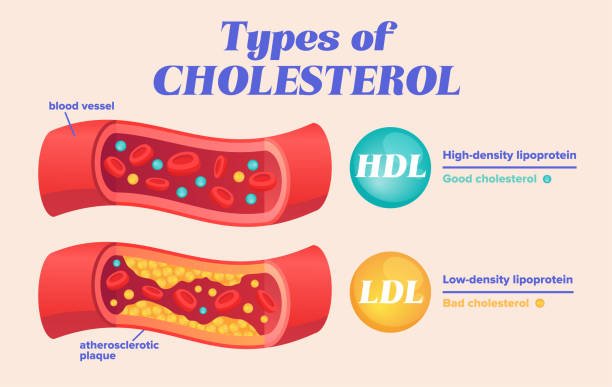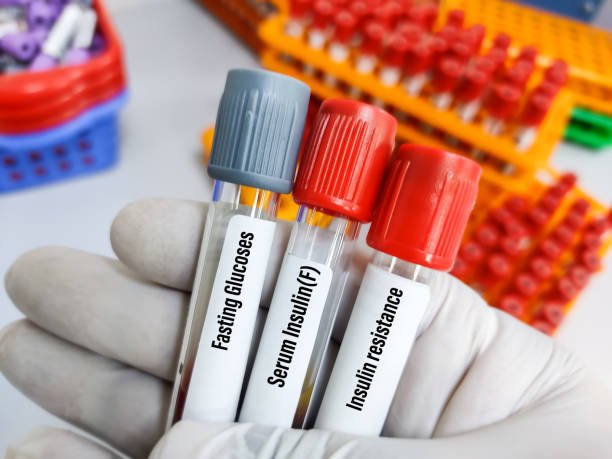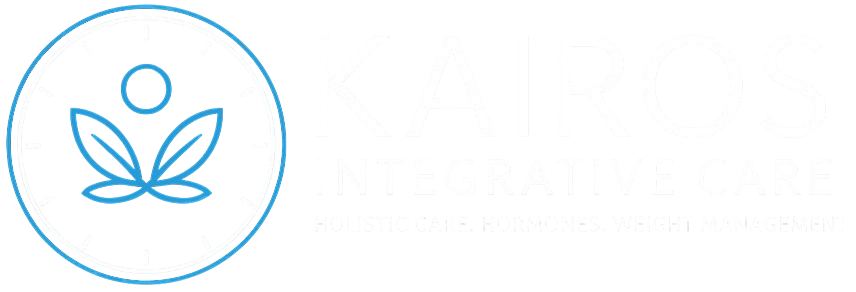We’ve all heard it: “Your cholesterol looks fine.” But what if fine isn’t the whole story?
At Kairos Integrative Care, we believe that how you feel and what your lab results show should align. And when they don’t, it’s time to dig deeper.
Your standard cholesterol panel is just the beginning. What truly matters isn’t how much cholesterol you have, but how your body handles it. That’s where advanced cholesterol testing comes in.
The Truth About Your Cholesterol Numbers
You’ve probably had your total cholesterol, LDL (“bad”), HDL (“good”), and triglycerides measured. But here’s the truth: those numbers alone don’t reveal your real risk.

In fact, people with normal cholesterol still suffer from heart attacks, strokes, or cognitive decline, while others with high cholesterol never develop heart disease at all.
Why? Because the type, behavior, and damage level of cholesterol matter far more than the total number.
1. ApoB: The Particle That Really Predicts Risk
Let’s start with ApoB. While LDL tells you how much cholesterol is in your bloodstream, ApoB tells you how many particles are carrying it. And that matters, because the more particles, the more chances they have to slip into artery walls and form plaque. Recent studies have shown that ApoB is a stronger predictor of heart disease than LDL alone. If you’re concerned about prevention, this test should be at the top of your list.
Optimal level:
- Under 80 mg/dL for prevention
- Under 60 mg/dL if you already have heart disease or diabetes
If your LDL is normal but ApoB is higher, you’re still at risk, even if no one has told you yet. This test gives us clearer, earlier insight into cardiovascular danger.
2. Lp(a): The Genetic Marker No One Talks About
Do you have a family history of early heart attacks? If yes, you might have high Lp(a), which is a lipoprotein your body produces genetically, regardless of your lifestyle. High Lp(a) increases risk for heart attack, stroke, aortic stenosis, and even pregnancy complications, even when other labs are fine.
Who should get this?
- Anyone with a family history of early heart disease
- Those with high cholesterol not improving with lifestyle changes
- People with stubborn plaque on calcium scans or imaging

You only need to test it once, but if it’s high, we can strategically reduce your risk with targeted support, even if we can’t change the gene.
3. Oxidized LDL: When Cholesterol Becomes Dangerous
You must have heard of bad cholesterol, but did you know not all LDL is equally dangerous? What really matters is whether your LDL has become oxidized, damaged by inflammation, or free radicals. That’s where the oxidized LDL test comes in. It tells us whether your cholesterol is contributing to plaque and inflammation, or just circulating harmlessly.
When we order oxidized LDL testing, we’re not just looking at how much cholesterol you have; we’re asking, “Is your cholesterol actually harming you?”
We also review related markers to get a complete picture:
- Oxidized LDL levels
- Inflammation markers like hsCRP
- Antioxidant status
4. ApoE Genotyping Test: Your Personalized Fat & Brain Risk Profile
Ever wonder why some people do well on high-fat diets while others don’t, especially with cholesterol? ApoE genotyping can help answer those questions. This simple genetic test reveals how your body processes fats, manages cholesterol, and even how your brain may age over time.
When we test your ApoE status, we’re not just checking your DNA, we’re looking for ways to personalize your care. This includes:
- Choosing the right type and amount of dietary fat
- Understanding your long-term heart and brain risks
- Creating a plan that supports your genes
Knowing your ApoE type helps us move beyond guesswork and toward real, preventive care that suits your body.
5. Fasting Insulin: The Missing Metabolic Link
You might be wondering, what does insulin have to do with cholesterol? But it does a lot.
High fasting insulin is an early warning sign of insulin resistance, a major driver of poor cholesterol patterns, inflammation, and plaque buildup. And it shows up years before blood sugar levels rise.

Fasting insulin ideally should be under 8 uIU/mL. Higher levels, even with normal glucose, suggest that your metabolism is under stress.
6. Additional Tests That Reveal the Bigger Picture
If we suspect deeper dysfunction, we may also run:
Triglyceride-to-HDL Ratio
A simple but powerful marker. An ideal ratio is under 2:1 (e.g., TG 100 / HDL 50). Higher ratios often suggest insulin resistance or inflammation.
Comprehensive Metabolic Panel (CMP)
We look at liver enzymes, kidney function, and glucose together to spot patterns related to carb tolerance, detox stress, or hidden inflammation.
Advanced Lipid Panel (LDL-P)
Particle size and number matter. Small, dense LDL particles are more atherogenic (plaque-forming) than large, fluffy ones—even at the same total cholesterol level.
Why We Go Deeper at Kairos Integrative Care
This advanced cholesterol testing isn’t for the sake of more data. It’s about clarity and precision, so we know where to focus our care, and you know why.
We’re here to help you:
- Understand your cardiovascular risk before a problem starts
- Avoid unnecessary medications or reactive treatment
- Find root causes, not just manage numbers
- Get personalized support that helps you feel your best
Final Thought
If you’re ready to stop guessing and finally understand what your heart and cholesterol numbers mean, we’re here to help. Lola, one of our experienced providers at Kairos Integrative Care, brings advanced training in functional medicine and root-cause healing. She’ll guide you through the right tests and a plan that truly fits your body.
If you live in Houston, Sugar Land, or nearby zip codes like 77046 and 77478, we’d love to support you. Book your appointment today and discover how advanced cholesterol testing can bring clarity, confidence, and peace of mind.




